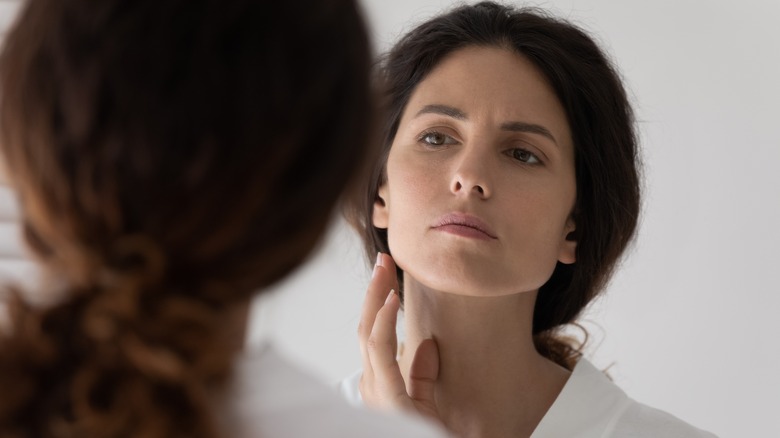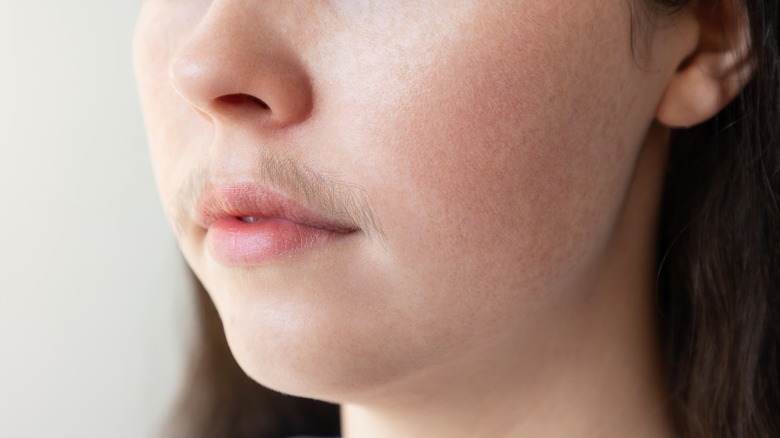This One Thing Could Be A Symptom Of A Hormonal Imbalance
Thanks to our hormones, we can sleep soundly at night, feel connected to other people, and escape dangerous situations (per Endocrine Society). But also thanks to our hormones, we might deal with burdens like stress, adult acne, and menstruation-related discomfort. Hormones are involved in hundreds of bodily functions including mood regulation, metabolism, body temperature maintenance, and sexual reproduction (via Cleveland Clinic). Without hormones sending messages throughout the body, we wouldn't be able to coordinate the physical processes that keep us alive and healthy.
However, subtle shifts in hormone levels can cause imbalances that affect the entire system, according to Healthline. Hormonal imbalances can be triggered by medications, stress, tumors, hormone therapy, and some cancer treatments. Additionally, conditions like diabetes, thyroid issues, Cushing syndrome, and Addison's disease may exacerbate hormonal imbalances.
Because there are so many hormones, all involved in different processes, it can be difficult to identify symptoms of imbalances. However, this one thing is often a clear sign that hormone levels are off.
A hormonal imbalance can cause body and facial hair growth
You may dream of a health condition that makes your hair grow faster, giving you the long, strong locks you've always wanted. However, hormonal imbalances can sometimes lead to hair growth in places besides the top of your head. According to Mayo Clinic, hirsutism is a condition where women experience excessive hair growth on the face, chest, back, lower abdomen, and thighs. This isn't the same as light peach fuzz on the body or a few random stray hairs on the face, dermatologist Dr. Michelle Green tells Byrdie. In the case of hirsutism, hair is often dark and thick and may be accompanied by other noticeable symptoms like acne, balding on the scalp, and a deepening voice.
The Endocrine Society explains that hirsutism is caused by a hormonal imbalance where women produce high levels of androgens. This is often due to polycystic ovarian syndrome (PCOS) or other issues with the adrenal glands.
Here's how to deal with hirsutism
According to Cleveland Clinic, hirsutism is painless, though it can cause stress and embarrassment for some people. Not only that, but the hormone disorders associated with the condition may cause other symptoms that can impact your health and well-being. Treatment for excessive hair growth can be as simple as shaving, waxing, or lasering off unwanted hair (per WebMD). Some women may also notice an improvement by taking medications to limit face and body hair growth or by maintaining a healthy weight, which could lower androgen production for those who are currently overweight.
It's also a good idea to speak to a doctor about your symptoms. A doctor may perform a blood or urine test to examine hormone levels in the body (per Medical News Today). They may also scan for tumors that could cause the body to produce excess hormones. Then, they can offer an appropriate treatment to help bring balance back to your hormones.


